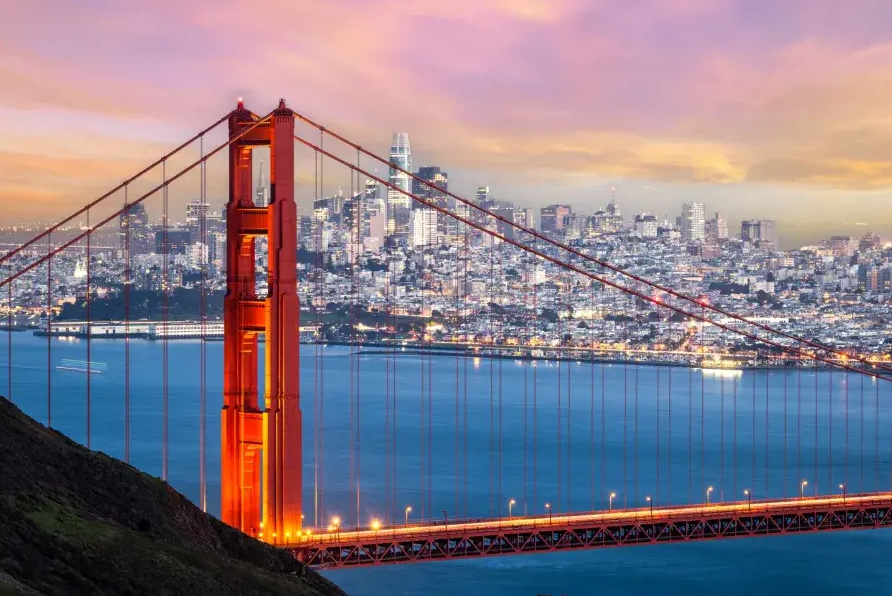Mayor Daniel Lurie’s “Heart of the City” executive directive promises significant opportunities for the business events sector, with more than $40 million in initial private-sector commitments secured to revitalise San Francisco’s downtown core and strengthen its position as a premier meetings and events destination.
The initiative, announced 9 September 2025, comes at a pivotal moment for San Francisco’s business events sector. Driven by a strong convention calendar and increased business travel, the city is expected to welcome 23.33 million visitors this year. The Moscone Center will host 32 events in 2025 – up from 25 conventions in 2024 – with hotel room night bookings associated with events increasing by more than 70% to 670,000 room nights.
Looking ahead, 2026 represents a landmark year as San Francisco becomes the first metropolitan area in the United States to host a Super Bowl and a FIFA World Cup in the same year, creating unprecedented opportunities for the hospitality and events sectors. The city has also secured a healthy events pipeline, having successfully closed new large-scale conferences including Microsoft Ignite, HumanX, and DECA, alongside returning events such as Snowflake and the Winter FancyFaire.
The comprehensive framework established by the Heart of the City directive will support this growth through new entertainment zones, streamlined event permitting, and major public space improvements designed to enhance the delegate experience and attract more conferences, conventions, and corporate gatherings to the city.
Early performance indicators demonstrate the city’s strengthening appeal to business events organisers, with crime down more than 40% in Union Square and the Financial District – key areas for convention hotels and delegate accommodation. Office return rates in San Francisco now exceed other major U.S. cities, whilst the upswing in hotel occupancy linked to Moscone Center activity shows substantial momentum in the sector’s recovery.
“There is undeniable optimism driving Yerba Buena’s resurgence,” said Scott Rowitz, executive director of the Yerba Buena Partnership. “This progress is vital to San Francisco’s sustained recovery, with Yerba Buena serving as a critical economic engine and attraction with its premiere arts, cultural, and entertainment venues, and Moscone Center. It’s especially exciting to see the upswing in convention bookings. These are indicators of a neighbourhood and city on the rise.”
The city is redesigning its outdoor event permitting process to improve efficiency and support activations around major events. New entertainment zones planned for Ellis Street, Maiden Lane, Jackson Square, and Claude Lane will create vibrant evening destinations for conference delegates and business travellers. Additionally, 20 new liquor licences have been approved for the hospitality zone through state legislation, expanding dining and nightlife options for the hundreds of thousands of visitors attending conventions and major sporting events.
Major infrastructure investments will transform the areas surrounding key convention venues. Streetscape enhancement projects are planned for Powell Street, Stockton Street, Fourth Street, and Embarcadero Plaza, creating more attractive environments for delegates moving between hotels, convention spaces, and dining venues. Front Street will receive lighting and infrastructure upgrades, whilst a new park in the East Cut and the Embarcadero Park waterfront project will provide additional gathering spaces for business events.
The PermitSF initiative introduces over-the-counter approvals for commercial tenant improvements, enabling hotels, restaurants, and event venues to expedite renovations and upgrades. The programme significantly reduces timeframes for businesses looking to expand or enhance their offerings to the business events market – crucial for operators preparing for the influx of visitors expected in 2026.
Within 100 days, the city will finalise plans for major public space transformations and establish new funding mechanisms to support small businesses that cater to convention delegates and business travellers. The six-month timeline includes launching process improvements for event permitting, establishing entertainment zones, and supporting activations around major events. Private funding tools are being developed to help hospitality businesses cover buildout costs and sustain operations as the city capitalises on the growing influx of visitors and events.
The initiative leverages coordination between the Downtown Development Corporation, community benefit districts, the Union Square Alliance, Downtown SF Partnership, Yerba Buena Partnership, and hospitality sector stakeholders. The city will monitor key performance indicators including hotel occupancy rates, convention bookings, foot traffic in key districts, and visitor spending to track the success of the downtown revitalisation efforts as San Francisco positions itself for a transformative period in its events calendar.

